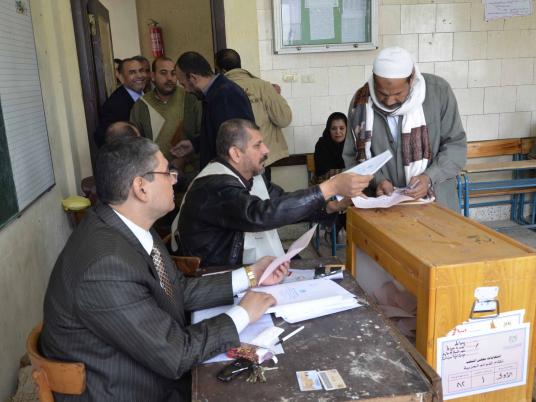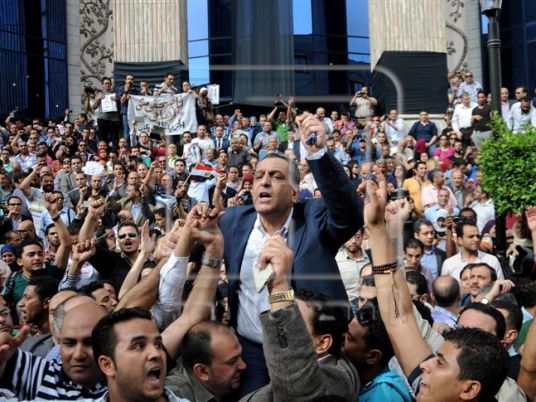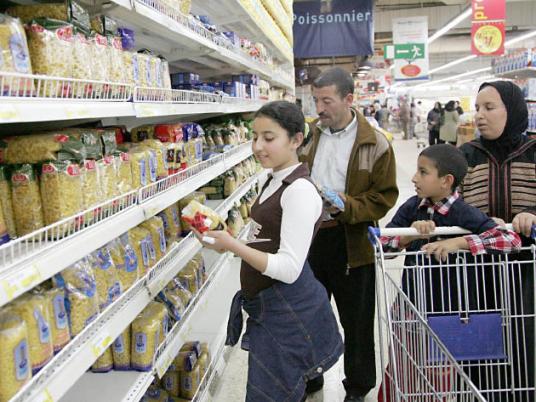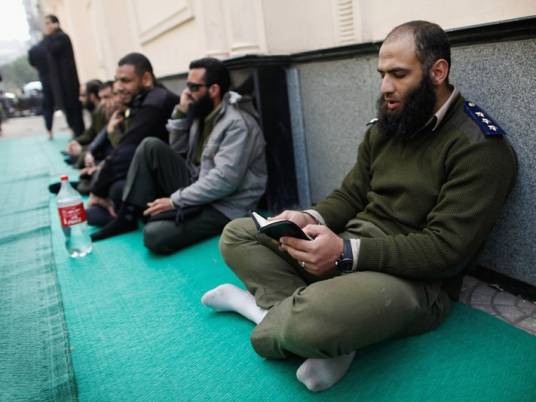
The High Elections Commission announced on Friday night the preliminary results of the first round of parliamentary elections, where the liberal Egyptian bloc garnered some 15 percent of the voters ballots in the contest over electoral lists.
A process of hand-wringing by the liberal camp started before a single result was out, from the moment it became obvious that — to liberals’ horror — not only had the Muslim Brotherhood’s Freedom and Justice Party (FJP) obliterated its secular competition in the first round, but that in some constituencies the Salafi-led Nour Party had, too.
There was never any real doubt that the FJP’s Democratic Alliance list would outstrip the rest. As analyst Issandr El Amrani writes on the Arabist blog, “their electoral machine is excellent, they have experience and a clear message, and are a known quantity.”
Compare this to the Egyptian Bloc list, made up of the Free Egyptians Party (FEP) and the Egyptian Social Democratic Party (EDSP) — both created after the revolution — as well as the Tagammu Party, the biggest mainstream leftist party during the Mubarak era but which now has little popular support.
This pitting of political immaturity and — from what results seem to indicate — an unpopular secular message against the Brotherhood’s 80 years of constituency building proved to be an unequal battle.
There are reports that some candidates used unscrupulous methods to exploit the religiosity of some voters and use it against their secular counterparts. Al-Shorouk reported on Thursday that Mostafa al-Naggar, an Adl Party candidate standing for an individual seat in Cairo, has filed charges against his competitor, Mohamed Yousry, after Yousry allegedly described Naggar as “the [Coptic Orthodox] Church’s candidate.”
Ramy Yaacoub, a member of the FEP’s political office and a senior campaign strategist, doubts that such smear campaigns had an effect on people who had made up their minds to vote for a liberal party but “might have influenced undecided voters.”
Yaacoub expresses optimism about the gains made by the Egyptian Bloc. He points in particular to two areas: Cairo’s third district and Alexandria. Though strongholds of the FJP and Nour Party, the Egyptian Bloc is currently pegged in second and third place, respectively, in both locations, ensuring them parliamentary representation.
“Alexandria is definitely leaning towards being more Salafi — to get two seats in this area is epic,” Yaacoub says, attributing the Egyptian Bloc’s success to a “round-the-clock and organized campaign.”
Surprisingly however, the Egyptian Bloc did less well in the supposedly liberal-friendly Red Sea Governorate, something Yaacoub says is due to “wrong decisions taken during the campaign.”
The hallmark of the FEP’s campaign was a series of slick, high-production television advertisements featuring FEP members, such as founder Naguib Sawiris, telling Egyptians why they should vote for them. Their presence on the ground, though, was less obvious, both in the run-up to the elections and on election day itself outside polling stations.
Yaacoub explains the challenges the FEP faced through the example of Abdeen, a district in central Cairo.
“We had to create a grassroots movement from scratch and were scrambling for people in the last three to four weeks before the election — we expected to get zero votes in Abdeen,” Yaacoub says.
The problem, Yaacoub suggests, is that not all FEP members are “politically savvy” enough to take to the campaign trail. “We decided to rely on locals [in Abdeen] — we didn’t have the time to train and educate members, and in fact gained a lot of new FEP members by doing this.”
Addressing its presence on the ground will be the Egyptian Bloc’s priority during the next two rounds, Yaacoub says.
“We will rely much more on grassroots movements and need to have people on rotation constantly on the ground just talking to people,” Yaacoub says. “We need to place more emphasis on local people who know the community and can each reach 20 to 30 people.”
However, analyst Michael Walid Hanna, a fellow with the Century Foundation, paints a grim picture of liberals’ chances in the coming stages.
“It’s not a heartening display. They didn’t do horribly but it’s all downhill from here,” Hanna says, noting that in coming stages the Egyptian Bloc will be contesting seats in areas where they enjoy even less support than those they fought for in the first round. “It’s so much more inhospitable in the second stage,” Hanna continues.
There is a real possibility, Hanna says, that in the coming parliament debate will be limited to the Islamist political spectrum, who “don’t need the liberals to govern.”
“The question is whether the Muslim Brotherhood has a broad mandate similar to that of Tunisia’s Ennahda Party and intends to be inclusive, or whether it wants to send shock waves through Egyptian society,” Hanna says.




